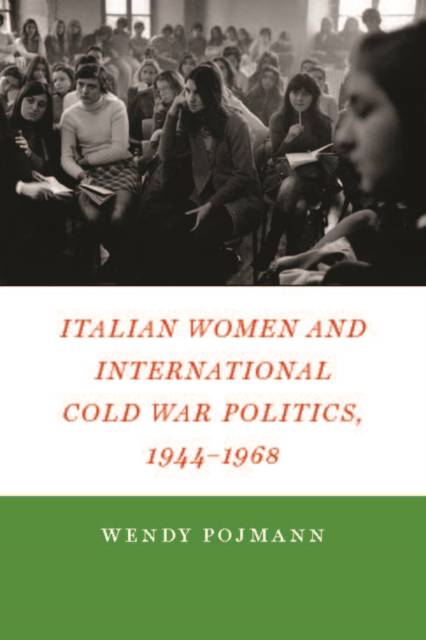
- Retrait gratuit dans votre magasin Club
- 7.000.000 titres dans notre catalogue
- Payer en toute sécurité
- Toujours un magasin près de chez vous
- Retrait gratuit dans votre magasin Club
- 7.000.000 titres dans notre catalogue
- Payer en toute sécurité
- Toujours un magasin près de chez vous
48,95 €
+ 97 points
Description
The women of the Socialist/Communist Unione Donne Italiane (UDI) and the lay Catholic Centro Italiano Femminile (CIF) are the protagonists in this keen study of the relationship between national Italian women's associations and international women's movements from 1944, when the associations became active, to 1968, when another generation of activists led women's movements in a new direction. By considering the reach and impact of these organizations in relation to Italian bipolarism (the nearly equal division of the Italian people into two camps, one
pro-Communist and the other pro-Western) and world events, Dr. Wendy Pojmann demonstrates that women played a much larger role than Cold War histories tend to relate. Not just voters, women were active political participants during the tumultuous decades of the Cold War. Italian Women in International Cold War Politics, 1944-1968 pays particular attention to the UDI's work with the largest international postwar women's organization, the pro-Soviet Women's International Democratic Federation (WIDF), and the CIF's relationship with the global Catholic organization the World Movement of Mothers (WMM), to better understand the ways in which the Cold War affected both national and international agendas for women's rights. The Italian case is particularly significant in placing women's movements in a broader context because it exemplifies many of the political and ideological dichotomies that characterized this period. With the Christian Democrats at the helm of the Italian government and the powerful opposition of the Communists, the Italian women's associations developed and used creative negotiation strategies to advance their visions of womanhood in a new era. They applied similar practices in their international work. This engaging, well-documented book draws on new and original material from archival collections and oral histories to develop a critical understanding of the important but often overlooked period in women's activism between the 1940s and 1970s.
pro-Communist and the other pro-Western) and world events, Dr. Wendy Pojmann demonstrates that women played a much larger role than Cold War histories tend to relate. Not just voters, women were active political participants during the tumultuous decades of the Cold War. Italian Women in International Cold War Politics, 1944-1968 pays particular attention to the UDI's work with the largest international postwar women's organization, the pro-Soviet Women's International Democratic Federation (WIDF), and the CIF's relationship with the global Catholic organization the World Movement of Mothers (WMM), to better understand the ways in which the Cold War affected both national and international agendas for women's rights. The Italian case is particularly significant in placing women's movements in a broader context because it exemplifies many of the political and ideological dichotomies that characterized this period. With the Christian Democrats at the helm of the Italian government and the powerful opposition of the Communists, the Italian women's associations developed and used creative negotiation strategies to advance their visions of womanhood in a new era. They applied similar practices in their international work. This engaging, well-documented book draws on new and original material from archival collections and oral histories to develop a critical understanding of the important but often overlooked period in women's activism between the 1940s and 1970s.
Spécifications
Parties prenantes
- Auteur(s) :
- Editeur:
Contenu
- Nombre de pages :
- 248
- Langue:
- Anglais
Caractéristiques
- EAN:
- 9780823245604
- Date de parution :
- 11-02-13
- Format:
- Livre relié
- Format numérique:
- Genaaid
- Dimensions :
- 152 mm x 229 mm
- Poids :
- 453 g







